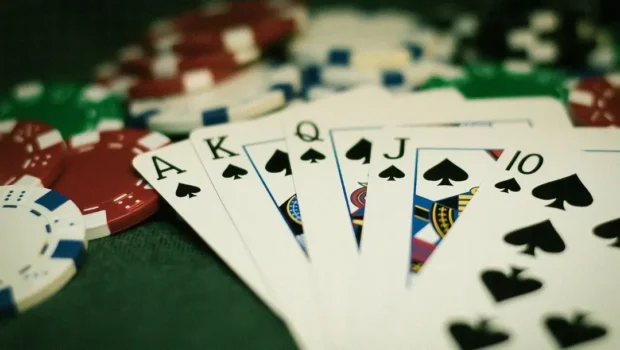Poker, a game of skill and strategy, often presents pitfalls that can turn the tide of play. Awareness and strategic foresight can help players steer clear of common missteps, enhancing their gameplay and decision-making at the table.
1. Overlooking Positional Awareness
Understanding your position in relation to the dealer is essential in poker strategy. Players often undervalue the advantage of acting last in a betting round, which provides the opportunity to observe the decisions of other players before making your own. Early positions require a stronger selection of hands since the player has less information about what others are holding.
2. Ignoring Bankroll Management
One of the primary aspects often neglected is bankroll management. Without setting limits or understanding the stakes one can afford, the risk of draining funds becomes significantly higher. It’s not just about how much you play but playing at levels that are sustainable and within your financial means.
3. Playing Too Many Hands

A frequent mistake is participating in too many rounds, and playing hands that should be folded from the start. Discernment in the hands you choose to play is vital. Engaging in every hand can quickly deplete your stack, making it harder to stay in the game when a truly favorable hand comes along.
4. Not Adapting to Opponents
Adjusting your playstyle according to the tendencies and strategies of your opponents is a skill often overlooked. Paying attention to patterns and betting habits can give you an edge. Adaptability can turn a demanding situation into an opportunity to capitalize on an opponent’s predictability.
5. Neglecting Pot Odds and Equity
Understanding the pot odds and equity is essential in making informed decisions. These concepts help determine the potential profitability of staying in a hand. Ignoring these odds can lead to calling bets that are not justified by the potential return, thereby increasing the likelihood of losses.
6. Underestimating Emotional Control

Poker isn’t just a game of odds and probabilities; it’s also a test of emotional resilience. Letting frustration or excitement dictate your decisions can lead to detrimental plays. Maintaining composure and making decisions based on logic rather than emotion is a key aspect of successful poker strategy.
7. Mismanaging the Bluff
Bluffing is an art that, if mismanaged, can be costly. The frequency and timing of bluffs must be carefully considered, as excessive bluffing is often transparent to seasoned players. The successful bluffer knows when to be aggressive and when to hold back, ensuring that their bluffs are convincing and timely.
8. Overlooking Table Selection
The choice of table can significantly impact your success rate. Competing against players of higher skill levels without adequate background can impede your ability to win. It’s important to choose a table that matches your skill set and playing style.
9. Ignoring Casino Promotions
Many poker players focus solely on the game and overlook the benefits that casino promotions can offer. Taking advantage of these promotions can provide added value to your play. For instance, the best online casinos in Michigan offer incentives that can enhance your gaming understanding and potentially increase your return.
10. Disregarding Telltale Signs

A poker player’s body language and behavior, known as “tell,” can provide critical information about their hand and intentions. Some players concentrate so much on their own strategy that they fail to observe these signals from their opponents, missing out on potentially advantageous insights.
11. Failing to Review Past Games
Reflecting on previous games is a tool for improvement that players often neglect. By analyzing your play, you can identify patterns in your decision-making, allowing for more refined strategies in future games.
12. Lack of Strategic Planning
Entering a game without a clear strategy is akin to setting sail without a compass. Players sometimes join a game without a plan, which can lead to inconsistent play and difficulty adapting to the dynamics of the table. A solid strategy acts as a guide for decision-making throughout the game.
13. Not Paying Attention to the Dealer’s Cards
In games like Texas Hold’em and Omaha, the community cards available to all players are as important as your hole cards. Some players become so focused on their own hands that they do not pay enough attention to the dealer’s cards and miss the chance to gauge the strength of their hand relative to the board. Recognizing how the community cards interact with your hand is fundamental in assessing whether to continue in the pot or fold.
14. Forgoing the Value Bet

Value betting is an essential component of a winning poker strategy, yet it is often underutilized. The concept involves placing a bet that you believe is smaller than the value of your hand, enticing weaker hands to call. Players sometimes miss the opportunity to make a value bet in favor of a safer check, thus foregoing potential profits over the long term.
15. Letting Go of Hand Equity Too Easily
A common setback for many players is folding in situations where seeing more cards could be beneficial. While folding a weak hand is often the right choice, there are scenarios where you have enough equity in the pot, either by the strength of your hand or the potential to improve it, to justify calling a bet. Calculating hand equity against the possible hands of your opponents is critical, and folding too readily can mean missing out on pots that you could have won.
Conclusion
Avoiding fundamental poker mistakes is essential for any player striving for success at the tables. By recognizing and addressing these errors, players can refine their approach and enhance their competitive edge.
 Poker Players Alliance Casino & Gambling Articles 2024
Poker Players Alliance Casino & Gambling Articles 2024






